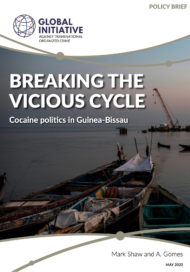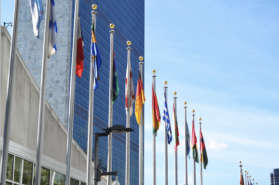Posted on 20 May 2014
A major rethink of international drug policies is under way. The failure of the UN to achieve its goal of ‘a drug free world’ and the continuation of enormous collateral damage from excessively militarised and enforcement-led drug policies, has led to growing calls for an end to the ‘war on drugs’. For decades the UN-centred drug control system has sought to enforce a uniform set of prohibitionist oriented policies often at the expense of other, arguably more effective policies that incorporate broad frameworks of public health and illicit market management. Now the consensus that underpinned this system is breaking apart and there is a new trajectory towards accepting global policy pluralism and that different policies will work for different countries and regions. The question, however, remains, how do states work together to improve global drug policies? This report highlights two approaches. First, drastically reallocating resources away from counterproductive and damaging policies towards proven public health policies. Second, pursuing rigorously monitored policy and regulatory experimentation.



